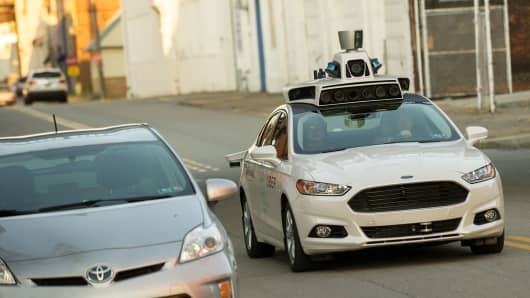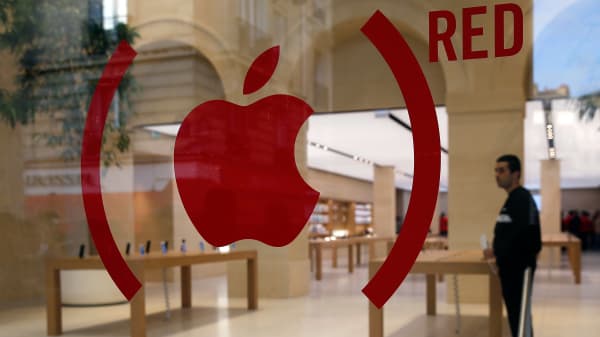It's obvious self-driving cars will disrupt car manufacturers. However, disruption is not an isolated event and doesn't impact just one industry at a time. Although an industry may seem safe on the outskirts, innovation can change that in an instant.
This very thing will happen with automated cars, with many industries feeling the impact:
- Parking:
Driverless cars will drop passengers off at their destination and go find parking elsewhere (or remain on the road if they are part of a ride-sharing program). The U.S. has about 144 billion square feet of total parking, which represents up to one-third of the total real estate in some large cities. Reports estimate self-driving vehicles have the potential to reduce parking space by about 61 billion square feet, which is about the size of Connecticut and Vermont combined. A reduction in the demand for parking can result in reclaiming this valuable real estate for more beneficial social and economic purposes. However, it also means significantly less money for cities through parking tickets. In 2012 alone, Washington, D.C. collected $92.6 million in parking ticket revenue.
- Real Estate:
While freeing up parking space may present an opportunity, real estate agents should be worried. Faster and easier commutes will shift residential value from properties in urban centers to those in suburban areas. In commercial real estate, spaces currently predicated on human drivers will be converted to other uses. For instance, PARTNER Engineering CEO, Joe Derhake, has suggested there will no longer be a need for gas stations on busy street corners to attract people's attention.
- Law Enforcement:
In 2014, Washington, D.C. issued an average of 773 tickets per day from cameras used to identify speeding cars — adding up to roughly $37.5 million worth of fines, according to the latest figures from AAA Mid-Atlantic. Self-driving cars will significantly reduce the number of speeding tickets. In addition to the decline in these tickets, we can also expect to see less drunk driving and other traffic violations, which may lead to a decrease in the size of police forces or shift people and resources to more important areas of serving and protecting the public.
- Insurance:
About 90 percent of car accidents are caused by human error. In the world of autonomous vehicles, we can expect to see a major reduction in the number of accidents, which will significantly change the insurance revenue model. As the risk of accidents drops, demand for insurance will take a sharp dive as well. In anticipation of this shift, some insurers are rolling out usage-based insurance policies (UBIs), which charge consumers based on how many miles they drive and the safety of their driving habits.
- Legal Professionals:
Personal injury lawyers will see a significant decrease in demand for their services. Vehicle collisions, which accounted for 35 percent of all civil trials in 2005, will be all but eliminated with automated vehicles. While this may seem like a niche of professionals, around 76,000 attorneys in the U.S. specialize in personal injury and make up approximately 6 percent of the country's population of lawyers.
- Hotels:
The need for lodging will drop as people sleep in their cars during overnight road trips. Utilizing cars as a moving motel is much more cost-efficient and convenient than purchasing a hotel room. Audi's vice president of brand strategy and digital business, Sven Schuwirth, has predicted that car interiors will eventually be able to morph between driving mode and sleeping mode, presenting a major obstacle for the hotel industry.
- Media, Entertainment and Online Retail:
Experts predict there will be more media consumption as autonomous cars transform into rolling living rooms. A report by McKinsey and Company finds each additional minute occupants spend on the Internet could generate $5.6 billion annually, totaling $140 billion if, for example, half of the time of a 44-minute average round-trip commute is spent online.
- Package and Food Delivery:
For delivery services, there will be enormous economic gains: McKinsey estimates between $100 to $500 billion per year by 2025 from driverless vehicles in the U.S. trucking industry. However, the bulk of this windfall will come from the elimination of truck drivers and their wages. We're already witnessing the digitization of package delivery systems with drones and UberEats, but the effects will become more devastating for drivers when autonomous cars are the norm.
- Auto Repair:
With multiple sensors, no distractions and no drunk driving, self-driving cars will largely eliminate car crashes so collision repair shops will lose a huge portion of their business. Indirectly, the decreased demand for new auto parts will hurt steel producers and part manufacturers. In 2010, 24 million vehicles were damaged in accidents, which had an economic cost of $76 billion in property damages, according to the U.S. Department of Transportation. The loss of this revenue will put a strain on these manufacturers.
- Auto Manufacturing:
By 2030, PwC predicts electronics will account for 50 percent of automobile manufacturing costs, up from one-third today. With Intel buying Mobileye for $15.3 billion, we're already seeing a shift in value from traditional auto manufacturers to software and electronics companies, which will form the core of all automotive systems. Traditional parts manufacturers will face competition from more technology-focused companies like Nvidia, which has already been tapped by automakers to help build the computers needed for driverless cars.
The disruption has started; autonomous cars will run the roads sooner than we expect. Business leaders in all industries can no longer take a "wait and see" approach. Companies must start being hyperaware by monitoring changes in their environment (which extends beyond what their competitors are doing); they must start making informed decisions and execute those decisions quickly to respond to the threat of autonomous vehicles. Further, company and government leaders must immediately address the impact on jobs and get serious about retraining efforts.
Commentary by Joel Barbier, a visiting scholar for the Global Center for Digital Business Transformation, director in the Cisco Digitization Office and a contributor to Digital Vortex: How Today's Market Leaders Can Beat Disruptive Competitors at Their Own Game.
Follow CNBC's Opinion section on Twitter @CNBCopinion.




